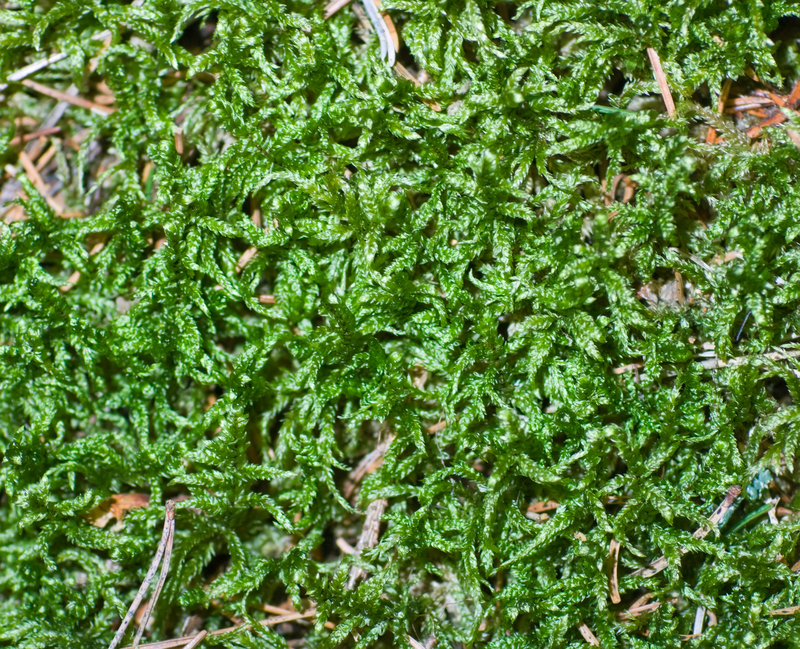Gardening alongside your furry friend: essential tips
Posted on 29/08/2025
Gardening Alongside Your Furry Friend: Essential Tips for Pet-Friendly Yards
Gardening is a rewarding activity that connects us to nature, provides a sanctuary for relaxation, and can yield beautiful flowers, healthy produce, and lush greenery. However, for many pet lovers, the garden is not just our domain--it's shared with our beloved dogs, cats, or other furry companions. Balancing your passion for plants with your pets' well-being requires thoughtful planning. In this comprehensive guide, we'll explore key tips for gardening with your furry friends safely and joyfully, ensuring both your plants and pets thrive side by side.

Why Gardening and Pet Companionship Enrich Each Other
Having a pet in your garden is more than just adorable antics and wagging tails--it's a recipe for bonding, physical activity, and mutual stress relief. As you tend to your plants, your pet gets to explore new sights and smells, helping fulfill their natural curiosity. Likewise, you can relax, knowing your yard is a safe, enriching space for every member of your family.
- Increased outdoor exercise for both humans and pets
- Natural pest control as some pets help deter nuisance wildlife
- Strengthened companionship and cooperation
Understanding How Pets Interact with Your Garden
Before starting your pet-friendly gardening journey, it's crucial to consider how your animals behave outdoors. Dogs and cats often exhibit natural habits--such as digging, chewing, marking territory, and seeking out shade--which can impact both the health of your plants and your pets. By observing these patterns, you can proactively avoid common garden mishaps.
Common Challenges When Gardening with Pets
- Digging up flower beds
- Chewing or ingesting toxic plants
- Marking or urination on plants
- Trampling delicate seedlings
- Leaving waste behind the shrubs
- Creating pathways and "doggy trails"
Designing a Pet-Safe and Beautiful Garden
A successful pet-friendly garden blends aesthetic appeal, productivity, and safety. Here's how you can design a pet-safe garden without sacrificing beauty or function:
1. Layout with Your Pet in Mind
- Create clear pathways: Dogs especially love to patrol and may naturally form "paths." Encourage this behavior by designing meandering walkways of mulch, stepping stones, or grass where your dog can roam without trampling garden beds.
- Designate digging zones: If your dog loves digging, offer a specific "dig pit" filled with sand or loose soil. Reward use of this space with buried toys or treats.
- Incorporate open spaces: Leave grassy areas for running and play to reduce pressure on delicate plantings.
2. Choose Pet Friendly Plants
Many common garden plants are toxic to animals, so selecting pet-safe plants is a top priority. Research before you plant, and avoid known hazards.
- Safe options: sunflowers, snapdragons, marigolds, petunias, rosemary, thyme, basil, catnip (for cats!), and ferns
- Plants to avoid: lilies (especially toxic to cats), daffodils, foxglove, sago palms, oleander, azaleas, rhododendrons, tulips, and nightshade
- Herbs for pets: Catnip, cat grass, parsley, mint (in moderation), and valerian
Always double-check plant species with veterinary resources if you're unsure about their safety.
3. Use Mulch with Caution
Mulch helps retain soil moisture, suppress weeds, and reduces runoff. However, not all mulch is safe for pets. Avoid cocoa mulch, which contains theobromine--a compound toxic to dogs. Instead, opt for shredded pine, cedar, or untreated wood chips. Make sure mulch pieces aren't too small to avoid choking hazards if ingested.
4. Install Secure Fencing and Boundaries
- Sturdy Fencing: To keep your pets safe and your garden intact, invest in secure fencing that prevents escapes and keeps wildlife out.
- Deterrent Barriers: For flower beds, use decorative fencing, stones, or low hedges to discourage trampling.
5. Provide Shade and Shelter
Pets need refuge from heat and rain. Create shaded rest areas--using trees, trellises with vines, or pet-friendly structures--and add a water bowl or small fountain to keep your furry friend cool and hydrated while you garden.
Protecting Pets from Hidden Garden Hazards
Chemicals and Fertilizers
Many common gardening products--such as slug pellets, pesticides, and certain fertilizers--pose risks if pets ingest or contact them. Always opt for organic or natural solutions, and store all chemicals securely out of reach. Remove any spilled granules promptly, and keep pets indoors during applications.
Toxic Plants and Compost
As previously mentioned, many ornamental plants are harmful if nibbled. Likewise, some items tossed into compost--like coffee grounds, avocado skins, moldy food, and certain fruits--can be toxic to pets. Ensure compost bins are sealed and inaccessible, and never use manure from meat-eating animals on crops pets might browse.
Sharp Tools and Small Objects
While gardening, keep an eye on your tools, garden ties, plant labels, and anything sharp or swallowable. Store tools safely after use to prevent injuries.
Pond and Water Features
Many pets are drawn to water, but uncovered ponds can pose drowning risks, especially for smaller animals or puppies. Install pond netting, shallow ledges, or fountains for safer hydration.
Training Your Furry Friend to Respect the Garden
Teaching your pet to coexist peacefully with your flower beds and vegetable patches takes patience but pays long-term dividends. Here are some effective garden training tips for pets:
- Start young: If possible, introduce puppies or kittens to the garden early, setting boundaries from day one.
- Use positive reinforcement: Reward your pet for staying on paths or respecting digging zones with praise and treats.
- Discourage unwanted behavior: Gently redirect digging, chewing, or trampling by guiding your pet away and offering toys or alternatives.
- Be consistent: Use the same cues and boundaries every time you're in the garden.
For persistent issues, consider temporary fencing around sensitive areas, commercial pet deterrents (safe for animals), or professional training support.
Pet Enrichment: Making the Garden Fun for Furry Companions
A happy, stimulated pet is less likely to develop garden-destructive habits. Enrichment means adding elements to your garden that engage your pet's senses and instincts.
Ideas for a Pet-Enriched Garden:
- Agility stations: Simple tunnels, ramps, or hurdles made from safe materials can inspire play and exercise.
- Water features: Splash pools or gentle fountains provide entertainment and cooling.
- Toy rotation: Keep a basket of safe, outdoor toys handy and rotate them to maintain interest.
- Scent gardens: Plant pet-safe herbs like mint or lavender for sniffing, or even a patch of catnip for kitties.
- Wildlife watching: Bird feeders, butterfly bushes, and bee hotels create wildlife-watching opportunities for both you and your pet.
Caring for Plants When Gardening with Pets
Pets and plants can peacefully share the garden, but you may need to tweak your care routine:
- Protect young seedlings: Use cloches, mesh tunnels, or temporary fencing during the most vulnerable stage.
- Elevate containers: Place pots on raised stands or shelves to keep them out of reach from curious noses and paws.
- Choose tough, resilient plants: Hardy, fast-recovering species tolerate occasional roughhousing better than delicate varieties.
Keep your eyes open for plant stress, such as broken stems or signs of nibbling, and act quickly to repair or replace affected plants.

Seasonal Tips for Gardening with Furry Friends
Spring & Summer:
- Watch for heat: Provide extra water stations and shade during warm weather, and walk pets early or late to prevent paw burn.
- Flea and tick precautions: Manage these pests naturally with safe deterrents like rosemary, lavender, and regular combing.
Fall & Winter:
- De-icing safety: Avoid salts or chemical de-icers that can irritate paws or be toxic if licked. Use sand or pet-safe products instead.
- Cold protection: Provide insulated shelters or bring outdoor pets inside during extreme cold.
Conclusion: Enjoy Gardening and Make Memories with Your Pet
Gardening alongside your furry friend is not only possible--it's a source of joy, well-being, and connection. With careful planning, safe plant choices, consistent training, and a spirit of cooperation, you can create a thriving outdoor haven that serves both you and your pet. Remember: a pet-friendly garden is built not just with soil and seeds, but with patience, observation, and love for your entire family.
Whether you're introducing a puppy to the pleasures of digging, creating a fragrant catnip corner, or unwinding with your dog as butterflies flit by, embracing your role as a gardener and pet guardian will yield rewards season after season.
Summary Table: Quick Pet-Friendly Gardening Tips
- Designate safe paths and play zones
- Choose non-toxic, pet-safe plants
- Avoid harmful chemicals and mulches
- Provide plenty of water, shade, and shelter
- Use durable fencing and boundaries
- Train pets to respect garden boundaries
- Enrich the garden with pet activities and scent gardens
Start today, and nurture a luscious, lively, and safe garden alongside your furry friends!



